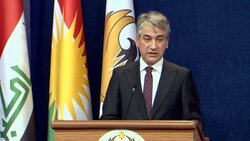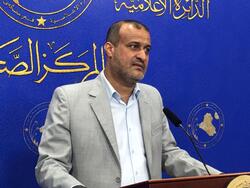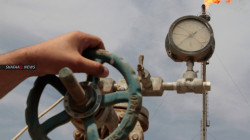Iraqi governorates object to budget cuts in 2024 spending plan

Shafaq News/ Members of governorate councils in Baghdad and Basrah expressed discontent with the budget cuts approved by the Iraqi parliament on Monday, arguing the cuts hinder the local authorities' abilities to address public needs.
Ali al-Zairjawi, a member of the Baghdad Provincial Council, cast doubts on the budget's preparation by the Baghdad Governorate.
He told Shafaq News the local government should submit a well-defined draft reflecting population density, deprivation levels, and service provision in various districts.
"The local government's proposal fell short on these criteria," al-Zairjawi said. "We returned it for revision to ensure proper allocation based on objective factors."
He noted the initial proposal sought 950 billion dinars, exceeding a more realistic allocation of 600 billion dinars.
"The council voted on allocating a budget of 200 billion dinars, which includes al-Sadr City, a-Hamidiyah, al-Maamel, al-Sabaa Qusour, al-Nasr City, Ur, al-Shaab, al-Nahrawan, al-Husseiniah, and others, while the remaining 400 billion were allocated to the rest of governorate," he explained. "The budget shall also consider issues like food security, poverty, operational costs, and reconstruction of war-ravaged territories. The council still awaits these adjustments to be introduced by the local government."
"The delay in approving the budget primarily lies with the Baghdad local government due to weak budget management," he said.
Basrah Governorate Council member Iyad Obeid criticized the 70% decrease in allocations, from 2.9 trillion dinars to 850 billion dinars.
"This amount cannot accommodate the numerous projects planned across the governorate," Obeid, who heads the council's planning committee, told Shafaq News Agency. "Basra contributes over 80% of Iraq's budget. We promised our people a major reconstruction effort, but this budget shrinks our ability to deliver."
Obeid, who expressed disappointment with the move, said that critical projects in the country's oil hub await funding, including a 200-bed hospital in Qurna, another hospital in the Sadiq district, and infrastructure upgrades in northern and southern Basrah.
"Land allocated for civil servant housing also faces development delays due to budget constraints," he added. "The budget cut threatens to stall efforts to provide essential services for swathes of land recently distributed to state employees to ease congestion in central Basrah."
"These areas were meant to come with proper infrastructure like water, electricity, and paved roads," Obeid said. "The budget reduction throws that into question."
Independent journalist Majash Al-Tamimi expressed skepticism about the overall impact of the 2024 budget and the reaction to the cuts.
"The budget offers little improvement for services and investment," al-Tamimi told Shafaq News Agency. "Political influences seem to have prevailed, creating a similar situation to past budgets. The government's ambitious plan to tackle over 30 sectors and 7,000 projects is unrealistic given Iraq's rampant financial and administrative corruption."
The 2024 budget allocates 10.633 trillion dinars for investment programs in the governorates, but only 3.333 trillion dinars were disbursed in 2023. The remaining 7.3 trillion dinars remain in escrow accounts managed by provincial authorities.





